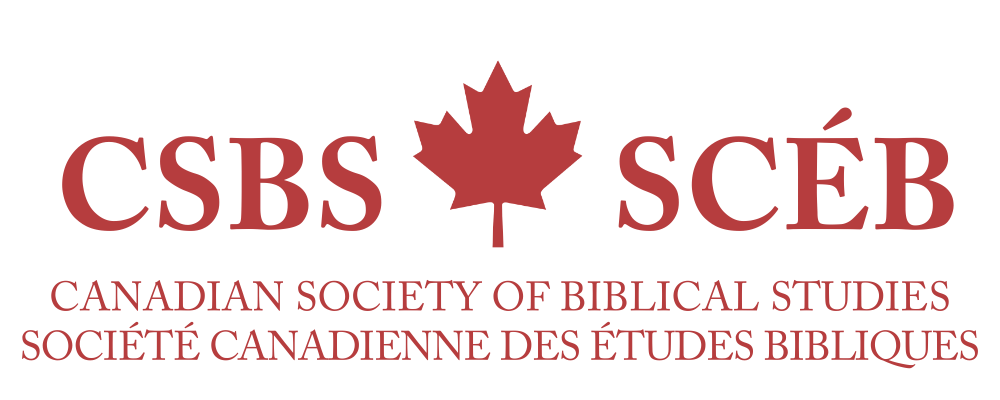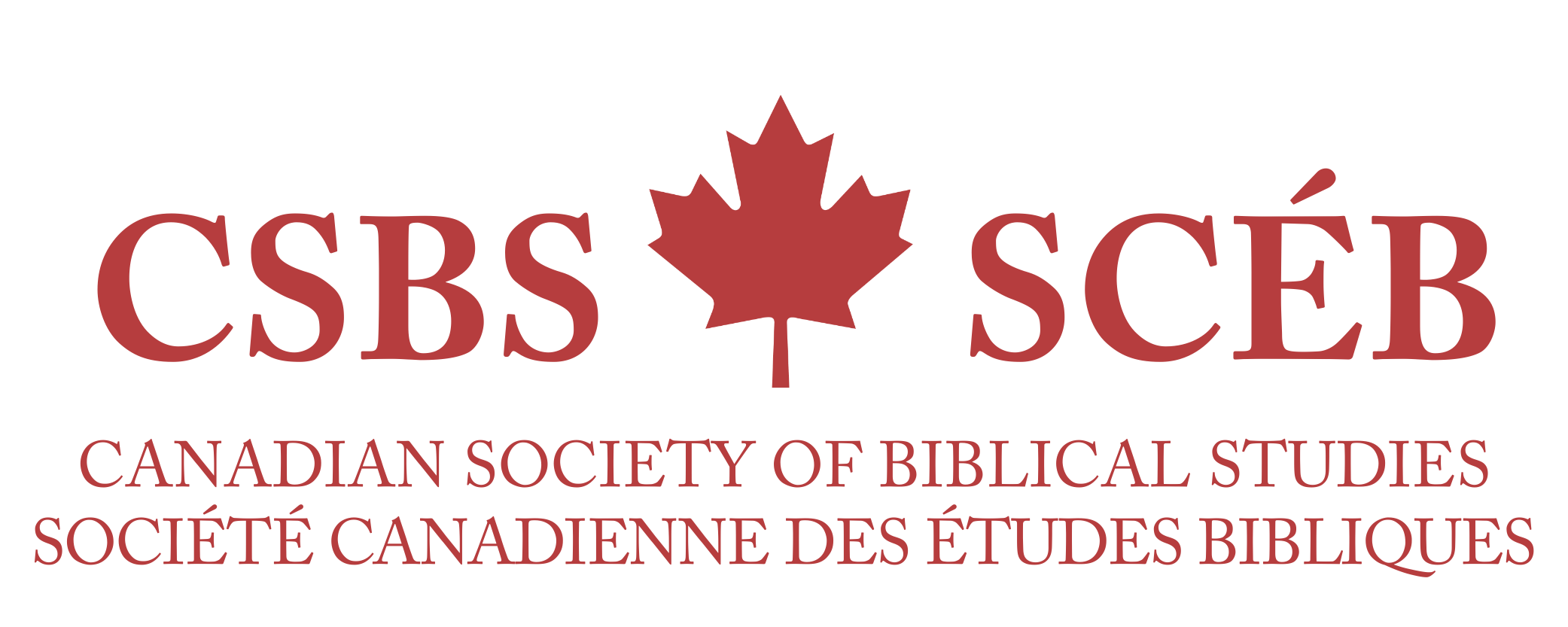The Beare Award
Award History
This award has been established in honour of Francis (Frank) Wright Beare, one of Canada’s most renowned New Testament scholars. He was active in CSBS and was named President of the Society in 1942. For a bibliography and personal appreciations, see the Festschrift: From Jesus to Paul: Studies in Honour of Francis Wright Beare, edited by Peter Richardson and John C. Hurd (Waterloo: Wilfrid Laurier University Press, 1984).
Value
The award of $500 is announced each year at the CSBS Annual General Meeting.
Criteria
This award recognizes an outstanding book in the areas of Christian Origins, Post-Biblical Judaism and/or Graeco-Roman Religions written in English or French by a member of the CSBS and published in the current and previous two years (currently those with a copyright date of 2025, 2024, 2023). Collections of essays, whether by a single author or by multiple authors, are not eligible for the award.
The category of “outstanding” ought to be understood expansively and may be characterized by persuasiveness and originality, theoretical or methodological innovation, intellectual creativity, and/or the high quality of scholarship that reaches beyond the academic guild and is public-facing. As of 2023, a lifetime maximum of two CSBS Book Awards can be given to any one scholar. When equally competitive books are considered, preference should be given to authors who have not previously won this award.
Selection Process
The three-person Adjudication Committee is appointed from among members of CSBS with a publishing record in at least one of the areas covered by the award.
Nominations
Nominators must be CSBS members. Self-nominations are acceptable. Nominations are made in the member login area of the CSBS website. The nomination deadline is January 15, 2026. Authors of all nominated books will be notified February, while only the award winner will be notified by late April or early May. Books can only be nominated for one of the two CSBS book awards. In the event that more than one book of a member is nominated for a CSBS book award, the author will be asked to select which one nominated book they would like to be eligible for the book award.
Previous Winners
- 2025: Courtney Friesen, Acting Gods, Playing Heroes, and the Interaction between Judaism, Christianity, and Greek Drama in the Early Common Era (Routledge, 2024).
- 2024: Matthew Pawlak, Sarcasm in Paul’s Letters (SNTSMS 182; Cambridge: Cambridge University Press, 2023).
- 2023: Sara Parks, Shayna Sheinfeld, Meredith J. C. Warren, Jewish and Christian Women in the Ancient Mediterranean (London: Routledge, 2022).
- 2022: Ryan Schellenberg, Abject Joy: Paul, Prison, and the Art of Making Do (Oxford: Oxford University Press, 2021).
- 2021: John S. Kloppenborg, Christ’s Associations: Connecting and Belonging in the Ancient City (New Haven: Yale University Press, 2019).
- 2020: Not awarded.
- 2019: Not awarded.
- 2018: Tony Burke, The Infancy Gospel of Thomas in the Syriac Tradition: A Critical Edition and English Translation (Piscataway, NJ: Gorgias Press, 2017). See our CSBS Blog for an author interview.
- 2017: Anders Runesson, Divine Wrath and Salvation in Matthew: The Narrative World of the First Gospel (Minneapolis: Fortress Press, 2016).
- 2016: Margaret Y. MacDonald, The Power of Children: The Construction of Christian Families in the Greco-Roman World (Waco: Baylor University Press, 2014).
- 2015: Ryan Schellenberg, Rethinking Paul’s Rhetorical Education: Comparative Rhetoric and 2 Corinthians 10–13 (Atlanta: Society of Biblical Literature, 2013.
- 2014: Alexander Damm, Ancient Rhetoric and the Synoptic Problem: Clarifying Markan Priority (Leuven: Peeters, 2013).
- 2013: Lincoln H. Blumell, Lettered Christians: Christians, Letters, and Late Antique Oxyrhynchus (Leiden: Brill, 2012).
- 2012: Tony Burke, De Infantia Iesu Evangelium Thomae Graece (Turnhout: Brepols, 2010).
- 2011: Daniel A. Smith, Revisiting the Empty Tomb: The Early History of Easter (Minneapolis: Fortress, 2010).
- 2010: Colleen Shantz, Paul in Ecstasy: The Neurobiology of the Apostle’s Life and Thought (Cambridge: Cambridge University Press, 2009).
- 2009: Terrence Donaldson, Judaism and the Gentiles: Jewish Patterns of Universalism (to 135 CE) (Waco: Baylor University Press, 2007).
- 2008: Kimberly Stratton, Naming the Witch: Magic, Ideology, and Stereotype in the Ancient World (Columbia University Press, 2007).
- 2007: John S. Kloppenborg, The Tenants in the Vineyard: Ideology, Economics, and Agrarian Conflict in Jewish Palestine (Tübingen: Mohr Siebeck, 2006).
- 2006: Alan Segal, Life After Death: A History of the Afterlife in Western Religion (New York: Doubleday, 2004).
- 2005: Stephen Westerholm, Perspectives Old and New on Paul: The “Lutheran” Paul and His Critics (Grand Rapids: Eerdmans, 2004).
- 2004: Philip Harland, Associations, Synagogues, and Congregations: Claiming a Place in Ancient Mediterranean Society (Minneapolis: Fortress Press, 2003.
- 2003: Adele Reinhartz, Befriending the Beloved Disciple: A Jewish Reading of the Gospel of John (New York: Continuum, 2001).
- 2002: William E. Arnal, Jesus and the Village Scribes: Galilean Conflicts and the Setting of Q (Minneapolis: Fortress, 2001).
- 2001: John S. Kloppenborg Verbin, Excavating Q: The History and Setting of the Sayings Gospel (Minneapolis: Fortress Press, 2000).
- 2000: Alan Kirk, The Composition of the Sayings Source: Genre, Synchrony, and Wisdom Redaction in Q (Leiden: Brill, 1998).
- 1998: Terry Donaldson, Paul and the Gentiles: Remapping the Apostle’s Convictional World (Minneapolis: Fortress Press, 1997).
- 1997: Steve Wilson, Related Strangers: Jews and Christians 70-170 C.E. (Minneapolis: Fortress Press, 1995).

